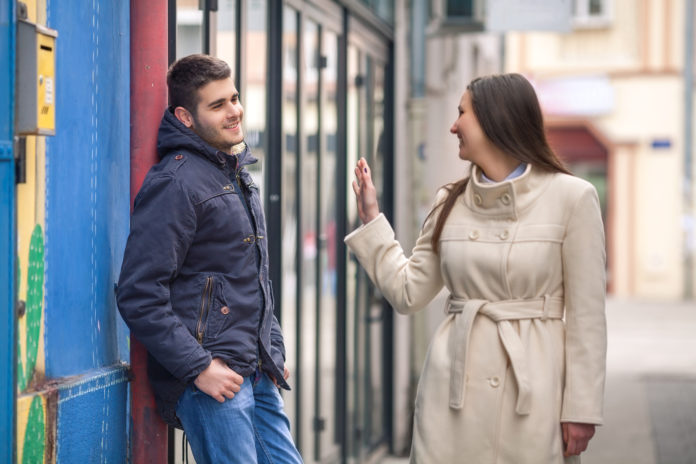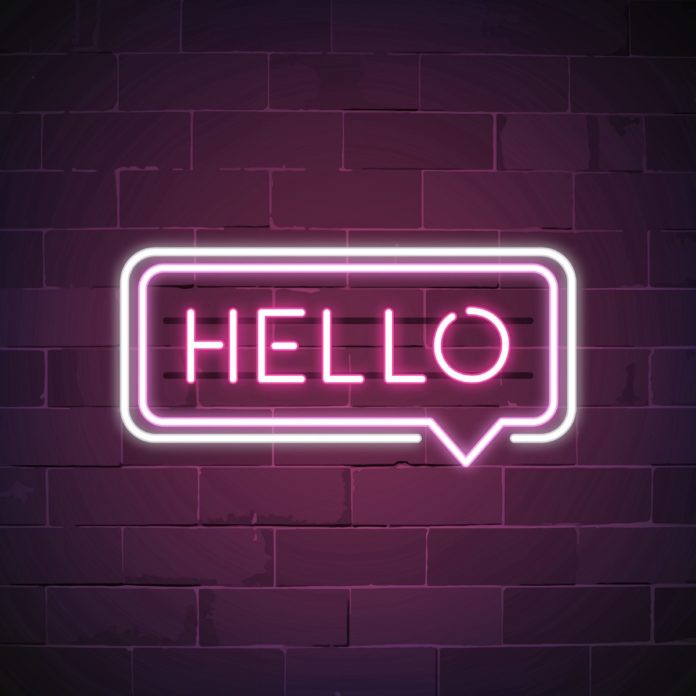Saying Hello or Hi is one of the ways to show that someone is friendly and that the person recognizes the existence of the person he is greeting. In South Africa, saying Hello to someone, including a total stranger, is a sign of courtesy and an act that shows one is well-trained and mannered.
There are 11 major languages in South Africa including, and people that own these languages have their ways of saying Hello or Hi. Like the way people say Hello in different ways (depending on the part of the country you find yourself in), there are different responses to Hello in these major languages.
Saying Hello Is A Sign Of Courtesy
Saying Hello as a form of greeting does not in any way bring someone down or bottle your social status; instead, it shows how civil you are. It is necessary to acknowledge people irrespective of their age through various forms of greeting – whether through a friendly wave, a nod, a smile, or a hello. It is not a big deal if you say Hello to a younger person; in African culture, the younger ones are expected to greet elderly people first as a sign of respect.

The South African culture promotes respect among its citizens. Whether you find yourself in an informal or formal environment, you should at least say Hello to anyone you may wish to speak with. When you enter a cab and meet someone, say Hello. When you want to ask for direction or make an inquiry from someone, say Hello or any form of greeting to the person.
Saying Hello to people of younger age, opposite gender, and lower class doesn’t make you less of who you are. While it is not compulsory to exchange pleasantries with people, it is necessary you do so at all times. And mind you, not everyone will respond to your greeting. That shouldn’t make you feel sad or disappointed. Just keep doing it.
How To Say Hello In IsiZulu
There are over 12 million native speakers of IsiZulu. IsiZulu is predominately spoken in KwaZulu-Natal province and is understood by over 50% of South Africa’s population. Zulu kingdom has a way of saying Hello both to an individual or more.
- Greeting: Sawubona! (to one) or Sanibona! (to many)
- Response: Unjani? – How are you?
How To Say Hello In IsiXhosa
IsiXhosa is spoken as a first language by approximately 8.2 million people in South Africa. However, about 11 million in places like Gauteng, Eastern Cape, and Northern Cape use it as a second language. The way Xhosa people say Hello is quite different from that of the Zulu. Responses to the greeting are almost similar.
- Greeting: Molo (to one) or Molweni (to many)
- Response: Unjani? (to one) or Kunjani? (to many). Unjani means How are you?
How To Say Hello In Afrikaans
There are about 7.2 native speakers of Afrikaans in South Africa (as of 2016). About 10.3 million people use it as a second language as of 2002. Afrikaans, a West Germanic language, is also spoken in Zimbabwe, Bostwana, Zambia, to a lesser extent. Afrikaners say Hello in two ways, and you can respond in simple or multiple words.
- Greeting: Haai! or Hallo!
- Response: Hoe gaan dit met jou or u?. Both of them mean, How are you?
How To Say Hello In Sepedi
Sepedi is one of South Africa’s official languages. There are over 4.7 million native speakers of the language. The way you say Hello to one person in Sepedi is different from when you greet more than one person.
- Greeting: Dumela (to one) or Dumelang (to many)
- Response: O kae? (to one) or Le Kae? (to many). Both means How are you?
How To Say Hello In IsiNdebele
IsiNdebele is predominately used in regions like Mpumalanga, Limpopo, Gauteng, and North West. They’re about 1.1 million native speakers of this official language in the country. You can say Hello to someone from Ndebele using either of the words Salibonani or Lotjhani.
- Greeting: Lotjhani or Salibonani
- Response: Unjani (to one) or Linjani (to many). Both means How are you?
How To Say Hello In Siswati
There are over 2 million native speakers of Siswati, while over 2 million use the official language as a second language (as of 2002). Like the Zulus, the Swati people say Hello by saying Sawubona.
- Greeting: Sawubona
- Response: Unjani? Which simply means How are you?
How To Say Hello In Setswana
Setswana is native to South Africa and Botswana and is spoken by over 8 million people in South Africa. Dumela means Hellon in Setswana.
- Greeting: Dumela
- Response: O tsogile jang? Le kae? (to one) or Le tsogile jang? (to many). Both means How are you?
How To Say Hello In Tshivenda
This is the language of the Venda people. It is both an official language and second language of some people in South Africa. Native to both Zimbabwe and South Africa, Tshivenda is spoken by over 1 million people in the country. You can say Ndaa or Aa if you want to say Hello in Tshivenda.
- Greeting: Ndaa or Aa
- Response: Vho vuwa hani?; Meaning How are you?
How To Say Hello In Xitsonga
Xitsonga is the language of the Tsonga people. It is predominately spoken in Limpopo and Mpumalanga, while there are more than 3 million native speakers of the language in South Africa. Avuxeni means Hello in the language.
- Greeting: Avuxeni
- Response: Ku njhani?; Meaning How are you?
How To Say Hello In Sesotho
Sesotho is a major language in South Africa and is spoken by more than 11 million people in South Africa. It is a language of the Sotho-Tswana group. To say Hello to one person, the right word to use is Dumela when addressing one person or Dumelang for more than one person.
- Greeting: Dumela (to one) or Dumelang (to many)
- Response: O kae?; Meaning How are you?

How To Say Hello In English
South Africa houses about 4.9 English-speaking South Africans. English, a West Germanic language, is one of the commonest languages of communication in the country, especially in most rural areas and in government and the media.
- Greeting: Hello or Hi
- Response: How are you?
How To Say Hello In Shona
Shona is not a major language in South Africa. However, smaller groups of the Shona people live in South Africa, Zambia, and Mozambique. Mhoro means Hello in South Africa.
- Greeting: Mhoro (to one) or Mhoroi (to many)
- Response: Wakadini zvako? (to one) or Makadini zvenyu? (to many). Both means How are you?
Other Ways To Say Hello To A South African
Apart from the local ways of saying Hello in the major languages mentioned above, there are other ways you can exchange pleasantries with a typical South African without them feeling offended.
These ways of ways are commonly used in the country and are easy to learn and use. Some of the words that make up this category are slang, borrowed words from some tribes, and the rest of them.

If you are in South Africa or planning to visit the country, you can get acquainted with local residents through any of these ways of greeting.
1. Howzit
Howzit is a traditional South African greeting that roughly translates as “How are you?” or simply “Hello.”
2. Sharp Fede
Township life is always different from the way of life of people in uncivilized areas. South Africans living in townships have a way of greeting, unlike most folks in the rural areas. One of the ways they greet other people is by telling them “Sharp Fede.” The greeting simply means “Hello, how are you?”
3. Aweh
This particular South African slang is mostly used in the colored community. Aweh is used to greet someone or acknowledge something. I believe the next time someone tells you “Aweh,” you already know what to say.
4. Heita
Whether you find yourself in the city or rural area, one thing you must learn is to accord people some respect through greeting and other ways. Heita is a cheery slang form of saying “Hello” among South Africans living in urban and rural areas.
Now you have known the above-mentioned ways of saying Hello in the 11 major languages in South Africa, and the four mentioned below them. It is important to note that generally, you can also say Hello a South Africans by saying Thobela (mostly used in Pedi), Dumela, and Sawubona.
